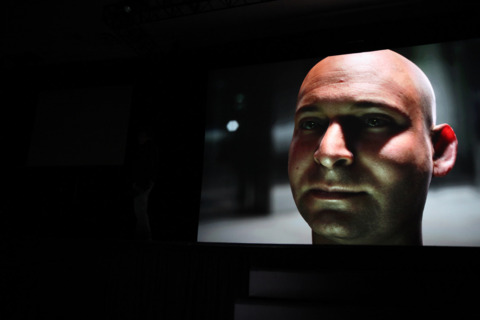Nvidia unveils next-gen face-rendering technology
FaceWorks promises to create near photo-realistic facial expressions, lighting, and speech.
A new facial rendering technology that promises to push graphics past the uncanny valley and into the realms of photorealism has been unveiled by GPU-maker Nvidia. Dubbed FaceWorks, the technology renders subtle facial expressions, lighting, and details such as pores and wrinkles to create a more realistic-looking model.

The first results of the technology were demonstrated at the GPU Technology Conference in San Jose, California. A model of a male face called Ira was made to perform several different facial expressions against a range of different lighting setups. Ira was also made to speak, screaming "take my money!" when asked about Nvidia's portable Project Shield computer.
FaceWorks is based upon technology developed by the Institute for Creative Technology, which uses over 150 cameras arranged in a spherical space to capture 30 expressions of the human face. That data is then condensed from its original 30GB size to around 300MB and rendered in realtime.
While the technology is certainly impressive, it's not likely to be coming to video games any time soon. Despite shrinking the size of data, actually rendering Ira at 1080p resolution requires over 2 teraflops (2 trillion floating-point operations per second) of graphics processing power. That's around half the processing power of Nvidia's latest Titan GPU, which tops out at 4.5 teraflops, and costs around $1000 (£800).
By comparison, the PlayStation 3 generates a mere 230 gigaflops, while even the upcoming PlayStation 4 tops out at 1.84 teraflops. All is not lost for fans of high-res rendering, though. At the PS4 press conference earlier this month, Quantic Dream head David Cage demonstrated its own similarly impressive face-rendering, showing that such technology may yet make its way into next-gen games.
Got a news tip or want to contact us directly? Email news@gamespot.com
Join the conversation